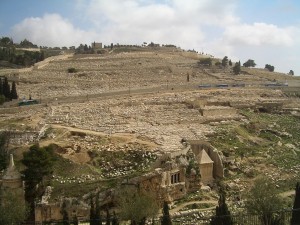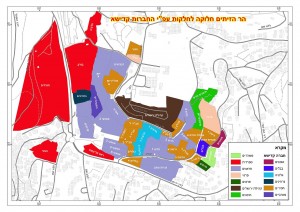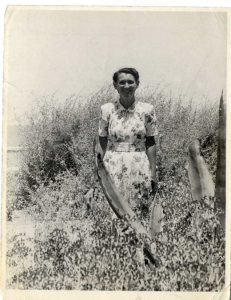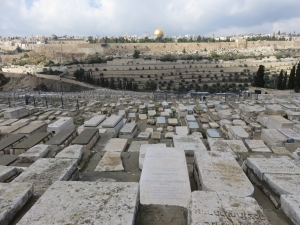By: Aaron Epstein
A while ago Bruce contacted me and asked me to assist in locating a grave at the Mount of Olives.
I did so.
He then asked me to escort him to the grave and show him exactly where the grave is located.
It was very difficult for Bruce to get where we were going, there were many stairs, and Bruce uses a walker. Nonetheless, he persisted.
It was only when we arrived that I understood why.
Bruce had tears in his eyes as he told me about Rabbi Gendel.
I’ve asked him to write up the story, so I can share it with all of you.
He generously agreed.
Rabbi Abraham Moshe Gendel was the Rabbi of Young Israel in Spring Valley, NY. A very traditional synagogue. I first met Rabbi Gendel in 1968 when I was looking into opening a Jewish funeral home in Rockland County, New York. At the time, Rabbi Gendel was also teaching at the Mesivta Beth Shraga in Monsey, New York. He was strongly encouraging me as there was a need for a Jewish funeral director in the area as the existing Jewish funeral home was poorly run and not favored by many of the local families and Rabbi’s. However, at the time I was too young to start my own funeral home, so I worked for other funeral homes for another five years before venturing on my own in 1973. Rabbi Gendel was one of my strongest supporters. While I was not personally orthodox, he respected me and respected my own personal conviction to traditional burial standards. Whenever a member of his congregation died, he immediately told them to call me.
Young Israel had a very diverse membership and not all of the members were orthodox, many were members simply because they loved Rabbi Gendel. There were times when a family did not want a traditional burial, but Rabbi Gendel and I would work with the family to provide a funeral that was traditional, but was also gave the family what they wanted. One time a family had a crypt in a mausoleum. They were members of Sons of Israel and wanted Rabbi Gendel to conduct the funeral. He did not understand what a crypt in a mausoleum was and I explained it to him. He believed that the mace should be buried in the earth and was trying to figure out a way to accommodate the family, but at the same time stay within the traditions. He asked if the crypt was below ground level because if it were, he felt that could help to meet the requirements of traditional burial. The crypt was not below the ground level. He then asked if the cemetery would allow us to pack earth into the crypt, but they would not allow that. Reluctantly, Rabbi Gendel said he could not officiate at the funeral. He did everything he could to try to find a way to help the family, but would not compromise his own traditional standards.
If a family did not want a traditional orthodox simple pine casket, he would allow them to use something different as long as it was free of metal, made in a shomer shabbos facility.
He always found time for everyone and was a very spiritual person. He was not a big man physically. He was somewhat short and had a slender build.
One afternoon in August of 1979, I had been working for many long hours and decided to take a nap in my funeral home. There was a sofa, so I stretched myself out on it to take a nap. It was just after 4 PM (16:00). I had just fallen to sleep and suddenly felt Rabbi Gendel standing next to me. He said, “Bruce, how would you eulogize me.” In other words, what type of hesped would I offer for him. I was totally shocked and said, “Rabbi, I would tell everyone what a big man you are.” While he was small in stature, he stood taller that the biggest of G-d’s creations. I woke up very shaken as I could not imagine why I would have such a shocking and upsetting dream. Two hours later I received a call that Rabbi Gendel died. He was only 48 years old. What had happened is that someone suggested that he do some physical exercise and gave him a free session at a health club. They apparently had him do too much and did not know he was diabetic. He went home exhausted and had the heart attack. His funeral was the next day and we sent him to Mt. of Olives to be buried. I cried at his funeral. Without saying a word, Rabbi Gendel brought out something in me that made me feel guilty for not being as religious as I should be. He never said a work about it, but it was just the type of man he was. In the past when I went to Israel I made it a point to visit his kever, and I still do so today when I visit Israel. This man was a true mensch, a Tzakek and a good nashuma. I pray that when I go into the next world that along with some of my beloved family members that Rabbi Gendel is one of the first souls I meet. Baruch Dyan HaEmes, may his memory be for a blessing and inspiration to all.




